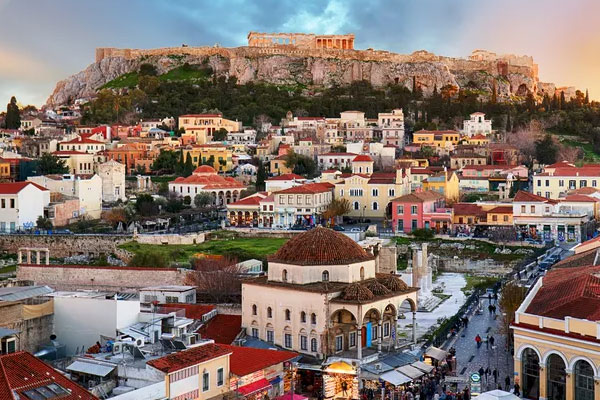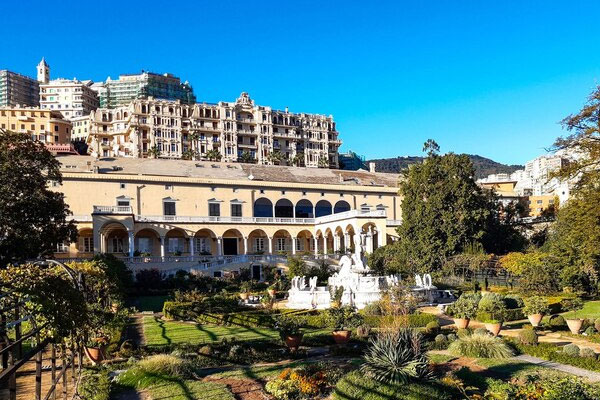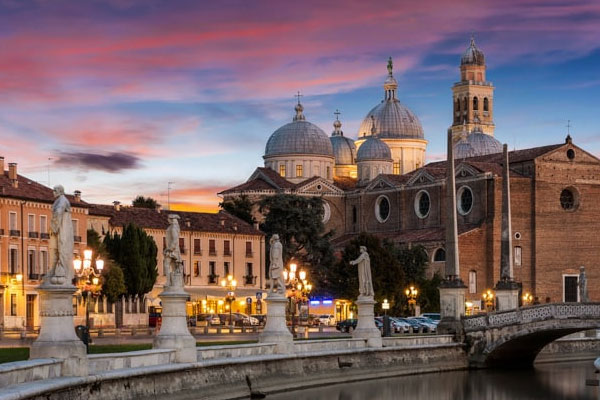Travel
Interesting Facts about Greece for tourists

Interesting Facts about Greece
Discovering the Wonders of Greece: 50 Interesting Facts about Greece You Probably Didn’t Know
Greece, with its enchanting landscapes, rich history, and vibrant culture, has long been a favorite destination for tourists seeking sun-soaked beaches, historical marvels, and delectable cuisine.
While many visitors are drawn to its popular resorts, the country offers a treasure trove of natural, gastronomic, and cultural attractions waiting to be explored. Uncover the lesser-known aspects of Greece through these 50 intriguing facts that go beyond the conventional tourist experience. Here is the list of some Interesting Facts about Greece:
Country of a Thousand Islands:
Greece boasts an extensive archipelago, estimated to have between 1200 to 6000 islands, although only around 166–227 are inhabited. This plethora of islands, ranging from solid landmasses to small rocky outcrops, has made Greece a haven for tourists seeking diverse and stunning landscapes.
Land of Museums:
As the cradle of ancient civilizations, Greece’s rich heritage is preserved in numerous archaeological museums. These institutions showcase the country’s profound history, providing visitors with tangible connections to the ancient era.
The Athens Metro is also a museum:
Even the Athens Metro serves as a testament to Greece’s historical richness. During its construction, thousands of archaeological artifacts were unearthed, leading to the incorporation of ancient finds into the metro stations. Travelers can witness antique vessels, statues, funerary monuments, mosaics, and jewelry as they navigate the city.
Water park for everyone:
Aqualand, situated on the island of Corfu, stands as one of Europe’s renowned water parks. Catering to both children and adults, it offers an expansive area with a variety of slides, water activities, and shore attractions, ensuring entertainment for visitors of all ages.
Ancient restaurants:
One of the most Interesting Facts about Greece is Greek taverns, the oldest gastronomic centers in the country, have been serving traditional dishes since antiquity. These establishments allow tourists to savor national delicacies like souvlaki, gemista, fasolada, and avgolemono, providing a taste of Greece’s culinary heritage.
Real Greek cheese:
Feta cheese, a hallmark of Greek cuisine, traces its roots back to Homer’s “Odyssey” in the 8th century BC. Today, authentic feta can only be produced in Greece, making it a must-try for cheese enthusiasts visiting the country.
Ancient symbol of the country:
The olive tree has been a symbol of Greece since ancient times. Legend has it that the goddess Athena planted the first olive tree in her city, and today, tourists can explore olive plantations and factories on islands like Lesbos and Crete.
A drink from God:
The ancient Greeks, influenced by the god of viticulture Dionysus, consistently consumed wine, often diluted with water. Modern Greece continues this tradition, producing a variety of wines with regional specialties like sweet varieties in Crete and the Aegean islands, red wines in Thessaly, and the exclusively Greek Retsina in central regions.
Red Beaches:
Santorini, known for its volcanic eruptions and the legend of Atlantis, features beaches with red, gray, and black sand due to volcanic rock particles. Despite their wild appearance, these beaches offer basic facilities for a comfortable holiday experience.
Crossing the Three Seas:
Balos Bay on Crete is a geographical wonder where the Ionian, Aegean, and Libyan seas converge, creating a breathtaking display of blue, cyan, and green hues. Tourists flock to this site for picturesque views and photo opportunities.
Healing water:
Greece’s Mediterranean region is home to various thermal springs, with Loutraki near Corinth and Athens being one of the oldest resorts. These springs have been used since ancient times for therapeutic purposes, catering to ailments related to the liver, kidneys, gastrointestinal tract, cardiovascular system, and musculoskeletal system.
Cape Lighthouse:
Cape Sounion, the southern edge of Attica, holds historical significance as an ancient strategic point. It is renowned for the Temple of Poseidon and its association with the myth of King Aegeus. Today, visitors flock to witness the picturesque sunset and explore the temple’s ruins.
Abode of the Oracle:
Delphi, once an ancient Greek city, became a global spiritual center in antiquity. The city’s Oracle of Delphi, Pythia, was consulted by notable figures like the Lydian king Croesus and the Roman emperor Nero. The extensive museum complex at Delphi preserves the temple of Apollo, the Athenian treasury, and the stadium where the Pythian Games were held.
Heart of Athens:
Athens, the capital of Greece, stands as the country’s most iconic city. The Acropolis, situated on a hill above the city, served as the cultural and religious center in ancient times. While only a few original structures remain, including the Parthenon, these architectural marvels continue to symbolize Greek culture.
Tomb of the legendary kings:
The Treasury of Atreus, often linked to Agamemnon from the Iliad, is a majestic structure from an era when scattered tribes populated Greece. Nearby, Mycenae, with its lion gate and Cyclopean masonry, provides insight into this ancient civilization.
The largest ancient Greek temple:
The Temple of Olympian Zeus in Athens is a monumental structure with a unique history. Initiated in the 6th century BC, it remained unfinished for 650 years before completion by the Roman Emperor Hadrian. The temple’s remaining fragment showcases its grand scale, honoring the supreme god of the Greek pantheon.
Mushroom capital:
Grevna in western Macedonia holds the title of Greece’s mushroom center, boasting over 1,300 mushroom species, including rare wild truffles. The city hosts an annual festival dedicated to these unique organisms, allowing visitors to indulge in mushroom-based dishes and products.
Miniature temple:
St. Theodora’s small temple in Arcadia, built in the 12th century, is a unique attraction covered by 17 trees up to 20 meters in height. This phenomenon, recorded in the Guinness Book of Records, creates the illusion that the trees are growing directly from the temple’s roof.
History on vessels:
Greek ceramic art, featuring red-figure and black-figure paintings, preserves stories from mythology and history. Today, tourists can find decorative vessels with these images, offering a tangible connection to ancient Greek culture.
The oldest temple:
The Temple of Hera on the island of Samos, founded in the 6th century BC, stands as one of Greece’s oldest temples. Despite centuries of wear, parts of its foundation and columns remain, attracting visitors who can also witness the lighting of the Olympic flame every four years.
Natural wealth:
Greece boasts diverse wildlife, with 116 mammal species, 18 amphibians, 240 bird species, 59 reptile species, and 140 fish species. Nature reserves, such as the one in southern Peloponnese, allow tourists to encounter rare animals, including African chameleons.
Ancient language:
Greek was the first language to introduce alphabetic writing and vowel sounds around 800 BC. The alphabet underwent several modifications over the years, eventually giving rise to the modern Greek script used today.
Petrified Forest:
Lesbos, an island in the northeast Aegean, is home to a unique petrified forest, a UNESCO World Heritage Site. Fossilized tree trunks and plants from the Miocene epoch, around 20 million years ago, provide insight into the island’s geological history.
Birthplace of Hippocrates:
The island of Kos claims to be the birth of Hippocrates, the “Father of Medicine.” Tourists can explore the plane tree under which Hippocrates supposedly taught his students and visit the Asklepion, an ancient healing center dedicated to the god of medicine.
Living on the edge:
Monemvasia, often referred to as the “Gibraltar of the East,” is a medieval fortress town on a small island connected to the mainland by a narrow causeway. Its stunning location and well-preserved architecture attract history enthusiasts and those seeking a unique travel experience.
Oldest known shipwreck:
The Antikythera Shipwreck, discovered off the coast of the island of Antikythera, yielded the famous Antikythera Mechanism, an ancient analog computer. The shipwreck, dating back to the 1st century BC, provides insights into ancient trade routes and maritime technology.
Hiking paradise:
The Vikos Gorge in northern Greece, part of the Vikos–Aoös National Park, is a haven for hikers and nature lovers. With its towering cliffs and diverse flora and fauna, it offers a breathtaking trekking experience.
Theater with perfect acoustics:
The ancient theater of Epidaurus, dedicated to the god of healing, Asclepius, is renowned for its remarkable acoustics. Even the faintest sound on stage can be heard throughout the 14,000-seat theater, creating an immersive experience for spectators.
Island of the Winds:
Mykonos, part of the Cyclades, is known as the “Island of the Winds.” Its white-washed buildings, narrow winding streets, vibrant nightlife, and picturesque windmills make it a popular destination for those seeking a mix of relaxation and excitement.
Birthplace of Democracy:
Athens is often considered the birthplace of democracy, where citizens participated in decision-making. The Agora, the city’s ancient marketplace, served as a gathering place for political discussions and civic activities.
Musical heritage:
Rembetika, a genre of Greek urban music, originated in the early 20th century and reflects the country’s cultural diversity. With influences from Asia Minor and the Balkans, Rembetika explores themes of love, loss, and everyday life.
Sea turtle nesting grounds:
Zakynthos, a picturesque island in the Ionian Sea, is known for its beautiful beaches and serves as a vital nesting site for loggerhead sea turtles. Visitors can witness the incredible sight of these gentle giants laying their eggs in the sand.
Invention of the Olympics:
The ancient Olympic Games, held in Olympia from 776 BC to 393 AD, marked the birth of the Olympic movement. Athletes from various Greek city-states gathered to compete in events like running, wrestling, and chariot racing to honor Zeus.
Ancient astronomical observatory:
The Tower of the Winds in Athens, built in the 1st century BC, served as a sundial, weather vane, and water clock. This ancient marvel showcased the Greeks’ advanced understanding of astronomy and meteorology.
First democratic constitution:
Cleisthenes, an ancient Athenian statesman, is often credited with establishing the first democratic constitution around 508–507 BC. His reforms laid the foundation for a political system where citizens had a direct role in governance.
Island of Knights:
Rhodes, once home to the Knights of Saint John, is a UNESCO World Heritage site. The medieval Old Town, surrounded by fortified walls, preserves the legacy of this historical order.
Olive oil as an ancient gift:
The olive tree and its precious oil were considered sacred in ancient Greece. Athletes, victorious in the Olympic Games, were crowned with olive wreaths, symbolizing the sacred connection between humans and the gods.
Beekeeping tradition:
The island of Aegina, close to Athens, has a long-standing tradition of beekeeping. Aegina honey, known for its distinct flavor and medicinal properties, has been produced for centuries and is a popular local delicacy.
Birthplace of the Marathon:
The Marathon race has its roots in ancient Greece, tracing back to the Battle of Marathon in 490 BC. Legend has it that a messenger named Pheidippides ran from Marathon to Athens to announce the victory, inspiring the modern-day marathon race.
Goddess of Wisdom:
Athens is named after Athena, the goddess of wisdom, courage, inspiration, civilization, law and justice, strategic warfare, mathematics, strength, strategy, the arts, crafts, and skill. The city’s name reflects its historical and cultural significance.
Minoan Civilization:
The ancient Minoan civilization, centered on the island of Crete, is considered one of the earliest advanced societies in Europe. The myth of the Minotaur and the labyrinth is linked to this intriguing civilization.
Byzantine marvel:
The Hosios Loukas Monastery, a UNESCO World Heritage site, exemplifies Byzantine architecture. Located in Boeotia, it boasts well-preserved frescoes and mosaics, providing a glimpse into the artistic and religious heritage of the Byzantine Empire.
Museum in the sky:
Meteora, a UNESCO World Heritage site, is home to monasteries perched atop towering rock formations. Accessible via staircases carved into the rock, these monasteries house a wealth of religious artifacts and offer breathtaking panoramic views.
Gods of Mount Olympus:
Mount Olympus, the highest mountain in Greece, was believed by the ancient Greeks to be the home of the twelve Olympian gods. Today, it remains a popular destination for hikers and nature enthusiasts.
Iconic Blue Domes:
The island of Santorini is famous for its white-washed buildings with blue-domed roofs. These iconic structures, against the backdrop of the deep blue Aegean Sea, create a postcard-perfect image that attracts millions of visitors each year.
Aegean Maritime Museum:
Situated in Mykonos, this museum celebrates the rich maritime history of the Aegean Sea. Visitors can explore exhibits featuring ship models, ancient navigational instruments, and artifacts, providing insight into the region’s seafaring past.
Traditional craftsmanship:
Greece is renowned for its traditional craftsmanship, including pottery, embroidery, and woodcarving. Local artisans, often following centuries-old techniques, produce intricate and beautiful items that serve as both art and functional objects.
Dionysian Festivals: ( Interesting Facts about Greece )
One of the Interesting Facts about Greece is that the ancient Greeks celebrated Dionysian festivals, dedicated to the god of wine, theater, and revelry. These festivities, featuring theatrical performances and processions, contributed to the development of Greek drama.
Tourists often bring unique souvenirs from Greece, including the Pythagorean cup, an invention of the famous philosopher. This mug, also known as the “mug of greed,” has an invisible mark that causes the liquid to spill out when reached, making it both original and ironic. Such intriguing aspects, alongside renowned achievements, make Greece an enticing destination for those seeking unknown treasures and cultural wonders. Share your thoughts and views ion the comments below regarding Interesting Facts about Greece.
Travel
What to do in Genoa – Travel To Genoa

What to do in Genoa – Travel To Genoa
What to do in Genoa :
Genoa, often overshadowed by its more popular Italian counterparts, holds a wealth of treasures waiting to be discovered. While it may not immediately come to mind when planning an Italian adventure, this maritime city boasts a rich history as the former capital of a powerful republic and the birthplace of renowned figures like Christopher Columbus and Niccolo Paganini.
Despite its lesser-known status, it offers a unique charm and a plethora of attractions that appeal to curious travelers. So, what makes this city special, and what should you do when you visit?
Getting to Genoa
Reaching Genoa is easier than you might think. During the summer months, S7 Airlines offers direct flights, while various European carriers operate year-round flights. Alternatively, you can fly to Milan and take a short train ride to Genoa, which is only about an hour and a half away. Train travel is also an option, with direct routes available from cities like Moscow. Whether you choose to fly or take the train, Genoa is well-connected and easily accessible.
Where to Stay in Genoa
Choosing accommodation in Genoa requires some consideration, especially due to the city’s intricate layout. The historical center may seem compact, but its labyrinthine streets can be confusing to navigate, particularly with luggage. Opting for hotels near major transportation hubs like Principe and Bignoli train stations or metro stations is advisable.
For first-time visitors staying briefly, accommodations near Genova Piazza Principe offer convenience and easy access to transportation links, including the airport bus stop and cruise terminal. From luxurious hotels like the Grand Hotel Savoia to budget-friendly options such as Hotel Chopin, there’s something to suit every preference and budget.
Getting Around Genoa
Exploring Italy on foot is the best way to immerse yourself in its unique atmosphere. While the city’s narrow medieval streets may pose navigational challenges, they offer an authentic glimpse into its history and character. However, public transportation is essential for covering longer distances or navigating the city’s verticality.
Genoa boasts a metro system, buses, funiculars, and elevators integrated into the transportation network. Consider purchasing a 24-hour Genova Pass for unlimited access to public transport, excluding airport shuttles.
What to See in Genoa
Contrary to popular belief, Genoa is brimming with attractions awaiting discovery. From opulent palaces and picturesque gardens to ancient churches and world-class museums, the city offers something for every traveler. Key highlights include Ferrari Square, a grandiose civic space; the Cathedral of St. Lawrence, guarded by stone lions; and the Palazzi dei Rolli, a collection of historic palaces showcasing Genoa’s architectural splendor.
Additionally, numerous churches, including the Church of St. Peter’s and the Church of St. John, offer cultural and architectural delights. Don’t miss iconic landmarks like Villa del Principe, Lanterna lighthouse, and the medieval gate of Porta Soprano, each adding to Genoa’s allure.
Day Trips from Genoa
While Genoa itself warrants exploration, it also serves as an ideal base for day trips to nearby destinations. Along the Ligurian coast, picturesque towns like the Cinque Terre National Park, Portofino, Rapallo, and Camogli beckon with their scenic beauty and charm. Venture westward to discover hidden gems such as Noli, Finale Ligure, and Albenga, each offering its own unique allure.
Beyond the coast, explore the caves of Toirano or visit the historic town of Campo Ligure, known for its medieval castle. With so much to see and do in the surrounding area, Genoa provides an excellent starting point for exploring Liguria’s diverse attractions.
Conclusion
Genoa may not be as widely recognized as other Italian cities, but its cultural heritage, architectural marvels, and coastal beauty make it a destination worth exploring. Whether you’re strolling through its labyrinthine streets, admiring historic palaces, or embarking on day trips along the Ligurian coast, Genoa captivates visitors with its rich history and vibrant atmosphere. So, why not uncover the hidden treasures of this underrated gem on your next Italian adventure?
Travel
Things to do in Rimini Italy

Things to do in Rimini Italy
Do you know the most important Things to do in Rimini Italy? Let’s take a look
Rimini is renowned as a beach resort destination, drawing visitors from Italy and beyond with its long history of seaside hospitality. However, beyond its sandy shores lies a city steeped in ancient heritage and cultural charm, offering a wealth of attractions for travelers to discover. In this comprehensive guide, we’ll delve into everything you need to know to plan an unforgettable trip to Rimini.
Getting to Rimini
Rimini is accessible by air, land, and sea, making it convenient to reach from various parts of Italy and Europe. The city has its own international airport, Federico Fellini Airport, serving both domestic and international flights. Additionally, Rimini is well-connected by train, with direct rail links to major cities like Bologna and Ancona. For those arriving by car, highways provide easy access to Rimini from neighboring regions.
Where to Stay in Rimini
With its status as a popular resort destination, Rimini offers a wide range of accommodation options to suit every traveler’s needs and preferences. The Marina Centro area, situated in the heart of the resort district, is ideal for beachgoers seeking convenience and proximity to amenities.
Here, hotels like Erbavoglio and De Londres offer comfortable accommodations within walking distance of the beach. Alternatively, for those looking to explore the city’s historic center, hotels in the Old Town area provide easy access to landmarks like the Tempio Malatestiano and Ponte di Tiberio.
Getting Around Rimini
Navigating Rimini is relatively straightforward, with most attractions located within easy reach of the city center. Visitors staying in Marina Centro can explore the resort area on foot, while those venturing further afield can make use of public transportation options like buses and trains. Rimini’s efficient public transit system provides convenient access to key sites, including the Old Town and surrounding areas.
What to See in Rimini
Rimini boasts a rich cultural heritage, with a variety of historical and architectural landmarks waiting to be explored. In the city’s historic center, visitors can admire the impressive Tempio Malatestiano, a medieval temple converted into a cathedral, and stroll across the ancient Ponte di Tiberio, a Roman bridge dating back to the 1st century AD. For a glimpse into Italy’s cinematic history, Parco Federico Fellini offers a tribute to the renowned filmmaker with statues and exhibits celebrating his life and work.
In addition to its historical attractions, Rimini is home to modern marvels like Italia in Miniatura, a theme park featuring miniature replicas of famous Italian landmarks. Perfect for families and visitors of all ages, this unique attraction offers a fun and educational experience that showcases the country’s cultural heritage on a smaller scale.
Day Trips from Rimini
While Rimini itself offers plenty to see and do, its strategic location makes it an ideal base for exploring the surrounding region. Nearby destinations like San Marino, Santarcangelo di Romagna, and Gradara are easily accessible by car or public transportation, offering charming villages, historic sites, and picturesque landscapes to discover.
For those seeking a taste of urban culture, cities like Bologna, Ravenna, and Ancona are just a short train ride away, providing opportunities to explore their rich history, vibrant arts scene, and culinary delights.
Conclusion
From its sun-drenched beaches to its ancient landmarks and modern attractions, Rimini offers a diverse array of experiences for travelers to enjoy. Whether you’re soaking up the sun along the Adriatic coast, exploring the city’s historic center, or embarking on day trips to nearby destinations, Rimini promises a memorable and rewarding travel experience for visitors of all interests and ages.
Travel
Where to Stay in Trento Italy

Where to Stay in Trento Italy
Where to Stay in Trento, Italy :
Trento, nestled in a valley at the base of the Alps, is a city worth exploring! With its picturesque surroundings and proximity to other charming towns and attractions, Trento offers something for every traveler. Whether you plan to wander through the city streets, venture into the nearby mountains, or use Trento as a launching pad for further adventures, there’s plenty to see and do here.
Which area of Trento is best for accommodation?
Trento is relatively straightforward to navigate, with the historical city center separated from the train and bus stations by a large square. Near the station, you’ll find a tourist information kiosk where you can pick up a map of the city, or visit a nearby travel agency for assistance.
Trento offers city-wide wireless internet access, although you may need to register in advance for login credentials. It’s worth noting that temperatures can vary significantly between the city and the mountains, so be sure to pack appropriate clothing and footwear for your adventures.
The area around the train station is relatively clean and quiet, making it a convenient option for those planning to explore the region using public transportation. Hotels near the station, such as the Grand Hotel Trento and Hotel America, offer comfortable accommodations at slightly lower prices compared to those in the city center. These hotels provide easy access to both the station and the historical center of Trento, which is just a short walk away.
Speaking of the city center, Trento’s historical district is relatively compact, making it easy to explore on foot. When choosing a hotel in this area, focus on factors such as cost and traveler reviews rather than proximity to specific attractions, as most hotels are within walking distance of the main sights.
Keep in mind that older buildings in the city center may lack amenities like elevators and spacious bathrooms, but they often offer charm and character in abundance.
Hotels such as Hotel Venezia and Hotel Aquila D’Oro offer comfortable accommodations in the heart of Trento’s city center. While some rooms may offer views of the city or nearby landmarks, be prepared for the possibility of street noise, especially in the mornings. Alternatively, Albergo Accademia provides spacious designer rooms with amenities like jacuzzis, although guests may prefer rooms facing the quieter courtyard.
For those seeking a more independent accommodation option, apartments can be a great choice. Borgo Rossi Apartments, located near Piazza Venezia, offer kitchenettes and dining areas, allowing guests to prepare their meals and experience local cuisine firsthand. Be sure to communicate with the apartment owners or managers ahead of time to clarify details like heating and air conditioning availability, parking options, and key pickup procedures.
Conclusion
In conclusion, Trento offers a range of accommodation options to suit every traveler’s needs and preferences. Whether you choose to stay near the train station for convenience or in the heart of the city center for easy access to attractions, you’re sure to enjoy your time exploring this charming Italian city.
-

 Travel9 months ago
Travel9 months agoBest Spinning Rod for Bass 2024
-

 Technology9 months ago
Technology9 months agoBest Lure for Trout 2024
-

 Travel9 months ago
Travel9 months agoBest Hunting and Fishing Clothing 2024
-

 Travel9 months ago
Travel9 months agoBest Robot Vacuum Cleaners 2024
-

 Technology9 months ago
Technology9 months agoBest Floats for Night Fishing
-

 News6 months ago
News6 months agoValentine’s Deals
-

 Technology9 months ago
Technology9 months agoBest Twisters for Fishing 2024
-

 Travel9 months ago
Travel9 months agoBest Spinning Fishing Reels for Bass 2024



















